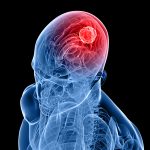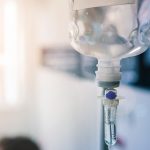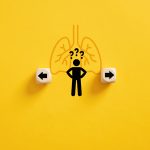-
Improving Glioblastoma Treatment
Phase I clinical trial finds adding a radiosensitizer may improve radiation’s ability to kill this fast-growing brain cancer.
by Thomas Celona
-
Quality of Life Across the Lifespan
As more people diagnosed with and treated for cancer live years beyond treatment, researchers look for ways to improve quality of life.
by Kevin McLaughlin
-
Genetic Testing for Women With Breast Cancer
New recommendations clarify when women diagnosed with breast cancer should be offered genetic testing for inherited cancer risk.
by Laura Gesualdi-Gilmore
-
TIL Therapy Amplifies the Immune System’s Attack on Melanoma
The recently approved immunotherapy Amtagvi uses a patient’s own immune cells to destroy advanced melanoma.
by Sandra Gordon
-
Q&A
A Musical Takes on CancerMusician and breast cancer survivor Marcy Marxer reenacts life during cancer treatment, with a comedic twist.
by Tyler Santora
-
Facts and Stats
Breast Cancer Survival Rates Continue to RiseNew report highlights decades of progress, as well as a persisting disparity.
by Thomas Celona
-
Survivor Profile
An Inspiration to OthersKay Kays, a 30-year pancreatic cancer survivor, works to advance research and raise awareness of the disease.
by Lindsey Konkel Neabore
-
Forward Look
Immunotherapy for Early-stage Lung CancerImmune checkpoint inhibitors can reduce the risk of recurrence for early-stage non-small cell lung cancer, but researchers are still exploring optimal timing for patients who have surgery.
by Anna Napolitano
-
Forward Look
The Late Effects of Childhood CancerAlmost all childhood cancer survivors will develop significant health problems related to their treatment by age 45.
by Suzanne McBride
-
Forward Look
AI Tool Could Improve Brain Tumor SurgeryAn advanced artificial intelligence tool helps surgeons accurately diagnose pediatric brain tumors during surgery.
by Carolyn Bernhardt
Cancer Talk
Lessons From 20 Years Living With Cancer
Multiple myeloma survivor Jonathan Gluck reflects on uncertainty, and the scientific progress that has kept him living with cancer for more than two decades.
by Eric Fitzsimmons
The Enduring Importance of Cancer Disparities ResearchOpening session from AACR conference highlights how perseverance and adversity have informed cancer disparities research over the years.
by Eric Fitzsimmons
Most Cancer Survivors Don’t Meet Healthy Diet GoalsDespite research linking fruits and vegetables to cancer survival, many people do not change their eating habits after diagnosis.
by Darlene Dobkowski
Many People Don’t Get Colonoscopy After Receiving Abnormal Blood TestsAbout half of people who receive abnormal results from colorectal cancer screening tests don’t follow up with a colonoscopy.
by Laura Gesualdi Gilmore















